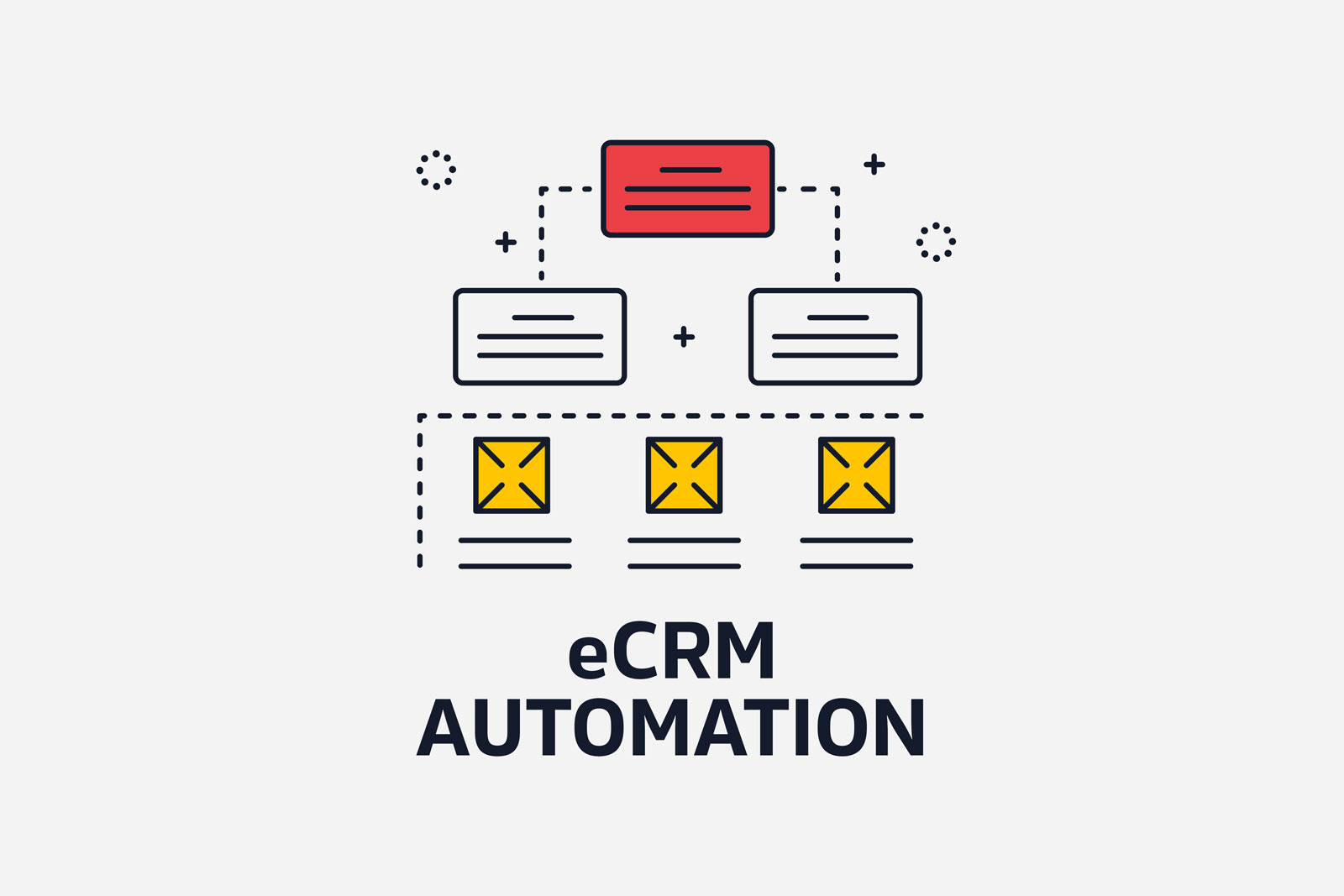Every year digital marketing gets more crowded with tools that claim to optimize customer data flows. The main purpose of these solutions is eCRM automation.
How much do you know about eCRM (electronic Customer Relationship Management) and marketing automation? How do you know if your company needs it now? Let’s discover the answers to these questions in this new article.
[sc_fs_faq html=”true” headline=”h2″ img=”5725″ question=”What is eCRM automation?” img_alt=”What is eCRM automation?” css_class=””] It is represented by specialized software through which you can create customer profiles, and keep historical data of online interactions.As a process, eCRM automation in marketing is a set of activities that can help you identify, get and retain customers, manage sales, design a marketing strategy and services [/sc_fs_faq]
Every company customizes its eCRM marketing automation depending on the type of customers and industry (choosing B2B vs. B2C eCRM or using both), needs, organization size, and objectives.
What is Marketing Automation?
It is a CRM (Customer Relationship Management) technology through which you can manage marketing processes from the same place, as well as complex campaigns, in as many channels as possible automatically.
Messages are automatically sent to the user database, following a set of rules called workflows.
You can use marketing automation to build a strategy for a lead generation program, nurturing a database, scoring your customers, measuring ROI in your campaigns, and more.
What does eCRM automation include?
Once implemented correctly, electronic Customer Relationship Management (eCRM) becomes a deeply integrated system into your business or enterprise structure.
The technology and data science built within an eCRM or CRM solution is a source of deep knowledge of your customer, transcending the classic department structure.
Here are the five activities included in eCRM automation by customer marketing:
- Customer management – Access to stored customer information depending on its level in the funnel.
- Account management – Consumer historical data that the marketing department and the sales department can use to make decisions in real-time.
- Case management – Requests, complaints, and suggestions from customers and prioritize files so that managers can receive notifications when problems occur.
- Back-end integration – Information from the logistics system, inventory, and payments using contact points accessed by customers – website, call center, eCommerce, etc.
- Reports and analyzes – Reports that allow companies to analyze customer behavior and allow make faster marketing and business decisions.

eCRM vs. Marketing Automation software
In comparison to eCRM automation mentioned above, a marketing automation software can contain all or some of:
- Collects data about consumers via social media, emails, website visits, or apps;
- It is compatible with big data marketing projects;
- Audience segmentation and targeting;
- Customize each message according to customers;
- Hub for creating campaigns;
- Integrates mobile messages with email and social media campaigns via SMS, group messages, and push notifications;
Benefits of eCRM automation
CRM was first developed to help sales teams be more efficient in centralizing and tracking customers. It helps you uncover hidden purchasing patterns, determine customer activities, and draw conclusions based on data for your strategic customer marketing automation decisions.
The top 3 benefits of eCRM automation are:
- Increases your team’s productivity – According to a recent study, eCRM automation brings a 14.5% increase in the productivity of the sales department (Source: Nucleus Research)
- Connects your company’s departments – CRM automation software allows you to synapses between sales, marketing, customer service to communicate effectively.
- Blend different sources of customer data – Measure and manage all your company’s B2B or B2C interactions and make customers get the same “look and feel” of your brand or services while interacting with your brands, covering all stages of the sales funnel.
What types of marketing automation are used?
CRM is focused on generating relevant, personalized customer interactions. Each platform includes different tools that increase your brand’s value by augmenting your services’ personalization.
- Design process visualizations via diagrams, to make marketing or sales decisions across the organization;
- Defines and justifies the decision to use automation software for employees;
- Tracks and analyzes online and offline data in real-time;
- Allows you to design different marketing strategies for each customer cycle;
- Helps you plan gradual revenue growth.
MVP launch for your eCRM automation
In case you decide to go for a CRM solution, keep in mind that the most successful automation brands have launched their first tool with many tests and optimizations.
My advice to you is to avoid finding the perfect solution, but with the best deployment plan. Choose an MVP launch (Minimum Viable Product launch) for your customer reporting and management software.
This way your development will be more agile, the company will optimize costs, the HR team can plan better the CRM talent search, and your software development project will not disturb the existing marketing and sales data systems.
Sources:
